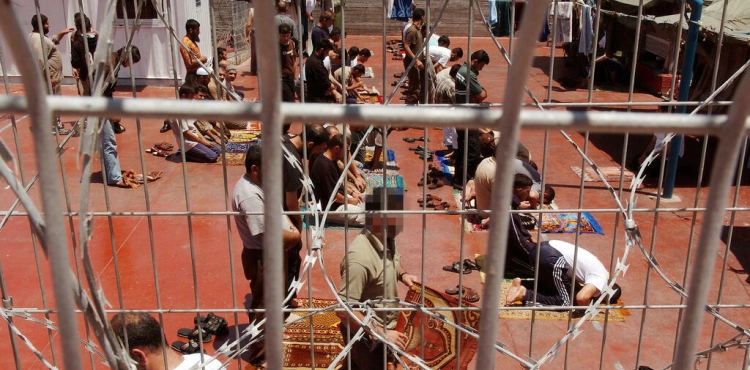Today, Tuesday, the Captive Club confirmed that since 2021, prisoners have witnessed an increase in cancer and tumors to different degrees.
The club said in a statement: "About 24 prisoners suffer from cancer and tumors of varying degrees."
He added, "Part of these patients underwent tumor removal operations, and they need close health follow-up, and another part is waiting for a final diagnosis of the nature of the tumor, in addition to the case of the prisoner Yaqoub Qadri, who needs an operation to remove a (benign) tumor in the gland.”
The club confirmed that among the injured prisoners are among the most difficult cases today (Asif Al-Rifai, Ahmed Abu Awad, Walid Daqqa, Ali Al-Hroub, and Musa Soufan).
The prisoner, Asif Al-Rifai (20 years) from Ramallah, is the most difficult case. He was arrested while he was suffering from cancer. Several months after his arrest, medical reports showed that the disease had spread to several parts of his body. He had recently started receiving (chemotherapy) treatment and was confined to (Asaf) Hospital. Harofeh, the Israeli, with the escalating risks to his life and fate, in light of his continued detention in the so-called (Ramle prison clinic).
Al-Rifai was arrested last September, and the journey of deprivation of treatment began before his arrest, as a result of his persecution, and their refusal to provide him with a permit to enter Jerusalem. Like all sick prisoners, he faced delays in conducting the necessary medical examinations for him after his arrest, as well as his transfer to receive treatment.
As for the prisoner Ahmed Abu Awad (52 years) from Gaza, who was arrested on March 21, while he was on his way to treatment at Al-Mutala Hospital in Jerusalem, he suffers from bone cancer, kidney failure, and a fracture in His shoulder, and his family confirms that medical reports indicate that the dangers to his fate and his life are escalating every hour, and he is in a very advanced stage of the disease. The detainee, Abu Awwad, is married and has five children. He works as an electrical engineer.
The Prisoner´s Club stated that about 700 sick prisoners in the occupied prisons who were diagnosed over the past years, face difficult health conditions, including about 200 who suffer from chronic diseases, and there may be dozens of prisoners who suffer from diseases that have not been diagnosed, as the policy of medical negligence constitutes ( Slow killing) is the most dangerous policy pursued by the Occupation Prisons Administration, and for that purpose it develops tools with the aim of killing prisoners.
An increase in cancer and tumors among prisoners since 2021












